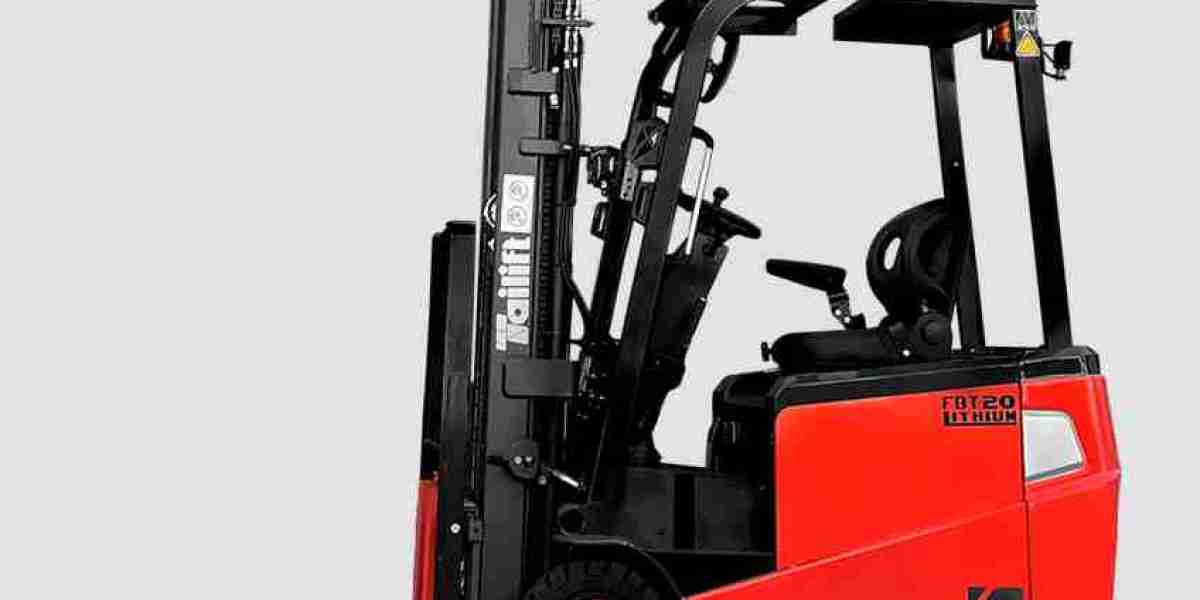In the ever-evolving landscape of logistics and warehousing, operational efficiency and sustainability have emerged as paramount concerns for businesses. As companies strive to optimize their operations while minimizing their environmental impact, many are turning their attention toward electric forklifts. This strategic shift is not just a response to market trends; it reflects a deeper understanding of the benefits that electric forklifts bring to warehouse operations.
The Growing Demand for Sustainable Solutions
The global push for sustainability is reshaping industries across the board, and warehousing is no exception. As businesses face increasing pressure to reduce their carbon footprints and improve their environmental practices, electric forklifts have become an attractive option. Unlike traditional internal combustion forklifts, which rely on fossil fuels and emit harmful pollutants, electric forklifts operate on batteries, significantly reducing greenhouse gas emissions.
By investing in electric forklifts, warehouses can align themselves with sustainability goals that resonate with consumers and stakeholders. This commitment not only enhances a company's reputation but also meets the growing demand for greener practices in supply chains. As more customers prioritize environmentally responsible companies, the decision to adopt electric forklifts is becoming a competitive advantage in the marketplace.
Cost Efficiency and Long-Term Savings
Another compelling reason for warehouses to invest in electric forklifts lies in their cost efficiency. While the initial purchase price of electric forklifts may be higher than that of traditional models, the long-term savings can be substantial. Electric forklifts require less maintenance due to fewer moving parts and the absence of complex combustion engines. This reliability translates to lower operational costs over time.
In addition to reduced maintenance expenses, electric forklifts typically consume less energy than their internal combustion counterparts. This energy efficiency leads to lower utility bills, which can significantly impact a warehouse's overall operational costs. As companies seek to streamline their budgets and maximize profitability, the financial benefit of adopting electric forklifts becomes increasingly clear.
Enhancing Workplace Safety and Comfort
The safety and well-being of warehouse employees are critical considerations for any operation. Electric forklifts contribute to a safer working environment in several ways. First and foremost, the absence of exhaust emissions improves air quality within warehouses, creating a healthier space for employees. This improvement is especially important in indoor environments where ventilation may be limited.
Moreover, electric forklifts are generally quieter than traditional models, which helps reduce noise pollution. A quieter working environment not only enhances employee comfort but also allows for better communication among staff. With safety and productivity closely linked, the use of electric forklifts can lead to a more efficient and harmonious workplace.
Versatility and Adaptability
Electric forklifts are known for their versatility, making them suitable for a wide range of applications within warehouses. Whether lifting heavy pallets, maneuvering in tight spaces, or navigating uneven terrain, electric forklifts are designed to tackle various tasks effectively. This adaptability allows warehouses to maximize the utility of their equipment, ensuring that they can handle diverse operational needs without compromising performance.
Furthermore, the advancements in battery technology have expanded the capabilities of electric forklifts. With longer battery life and faster charging times, these machines can operate efficiently throughout the day, minimizing downtime and maximizing productivity. As warehouses continue to evolve and adapt to changing demands, the ability to rely on versatile electric forklifts becomes increasingly valuable.
Regulatory Compliance and Future-Proofing Operations
As governments around the world implement stricter environmental regulations, warehouses must stay ahead of compliance requirements. Investing in electric forklifts positions businesses to meet current and future regulations regarding emissions and workplace safety. By proactively adopting cleaner technologies, warehouses can avoid potential penalties and ensure their operations are in line with industry standards.
Moreover, as the trend toward sustainability continues to gain momentum, the demand for electric forklifts is expected to grow. By investing in these machines now, warehouses are future-proofing their operations, positioning themselves for success in an increasingly eco-conscious marketplace. This strategic move not only satisfies regulatory requirements but also sets the stage for long-term growth and sustainability.
Conclusion
The shift toward electric forklifts in warehouse operations is driven by a combination of sustainability, cost efficiency, workplace safety, versatility, and regulatory compliance. As businesses recognize the numerous advantages associated with electric forklifts, the decision to invest in this technology becomes increasingly compelling. Tailift Material Handling USA Inc offers a range of electric forklifts designed to meet the diverse needs of warehouses, providing reliable solutions that align with the industry's evolving demands. By embracing electric forklifts, warehouses are not just enhancing their operational efficiency; they are also contributing to a more sustainable future.








